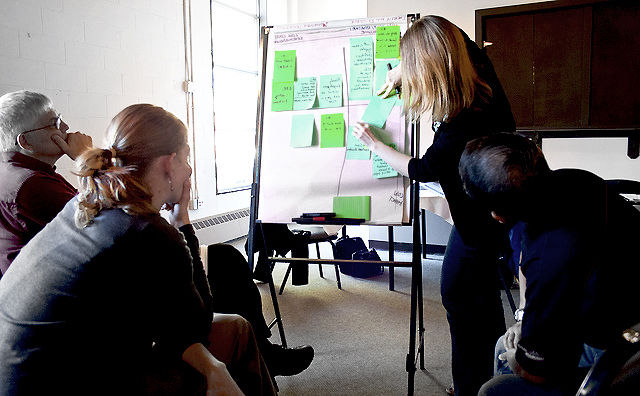Project management skills are absolutely essential for entrepreneurs. You will need to make deadlines to get your product on the market in a reasonable timeframe. You will also need to work on limited resources to create and distribute the best possible product.
What A Project Manager Does
Some entrepreneurs delegate startup project management to a trusted and experienced project manager. In the early stages of your startup, however, it is more than likely that you will be your organization’s primary project manager.
Timeliness, cost and quality are the three key areas of concern when managing a project. You will need to allocate resources and time efficiently for optimal results and on-time completion. You will also need to establish working relationships with everyone on your team and communicate every step of the way to ensure the project milestones are met.
The Steps Of Project Management
The process of managing a project for your startup can be broken down into seven steps.
- Project selection. First and foremost, choose a project that is worth pursuing. Define a main goal and a tentative end date. Your project might be to design and launch a new product, to create an advertising campaign, or to market to a new audience. It should be specific; rather than “increase sales,” start a project to “increase international sales by 25 percent.”
- Break it down. Set mini-goals that lead up to completion. Goals should describe actions, such as “complete draft of print ad” and “distribute customer survey.” Create deadlines by which each mini-goal should be completed.
- Set a budget. Break down the overall project budget to correspond with mini-goals. Allow room for revision.
- Manage risk. Your project may cost more than expected, or a team member may suddenly drop out of the job. While you cannot predict all mishaps, having backup plans helps prevent delay.
- Delegate responsibilities. Choose a skilled project staff with which you have established working relationships. Discuss each role, and make sure your staff agrees that the deadlines are reasonable and achievable.
- Start the project. Request updates and check in with each department on a daily basis to ensure each milestone is reached on time.
- Complete and evaluate. As you wrap up the project, evaluate the results, as well as the total costs.
Helpful Tools For Project Managers
Assign one of your project staff members to be a scribe during your meetings. This person will take notes and submit a summary of the meeting to each member. A coordinated summary puts everyone on the same page.
Online project management apps are a godsend for startup projects, especially if some or all of your staff works remotely. There are numerous tools available for different operating systems. Choose one that creates a mutual workspace where team members can share files, updates and notes. This ensures nobody gets left out of an email correspondence or misses an update.
Communication failure is one of the biggest obstacles to working with a group. Your staff should be able to communicate problems to you as soon as they arise for swift resolution. A great project manager communicates well and sets clear guidelines that lead to optimal results.

